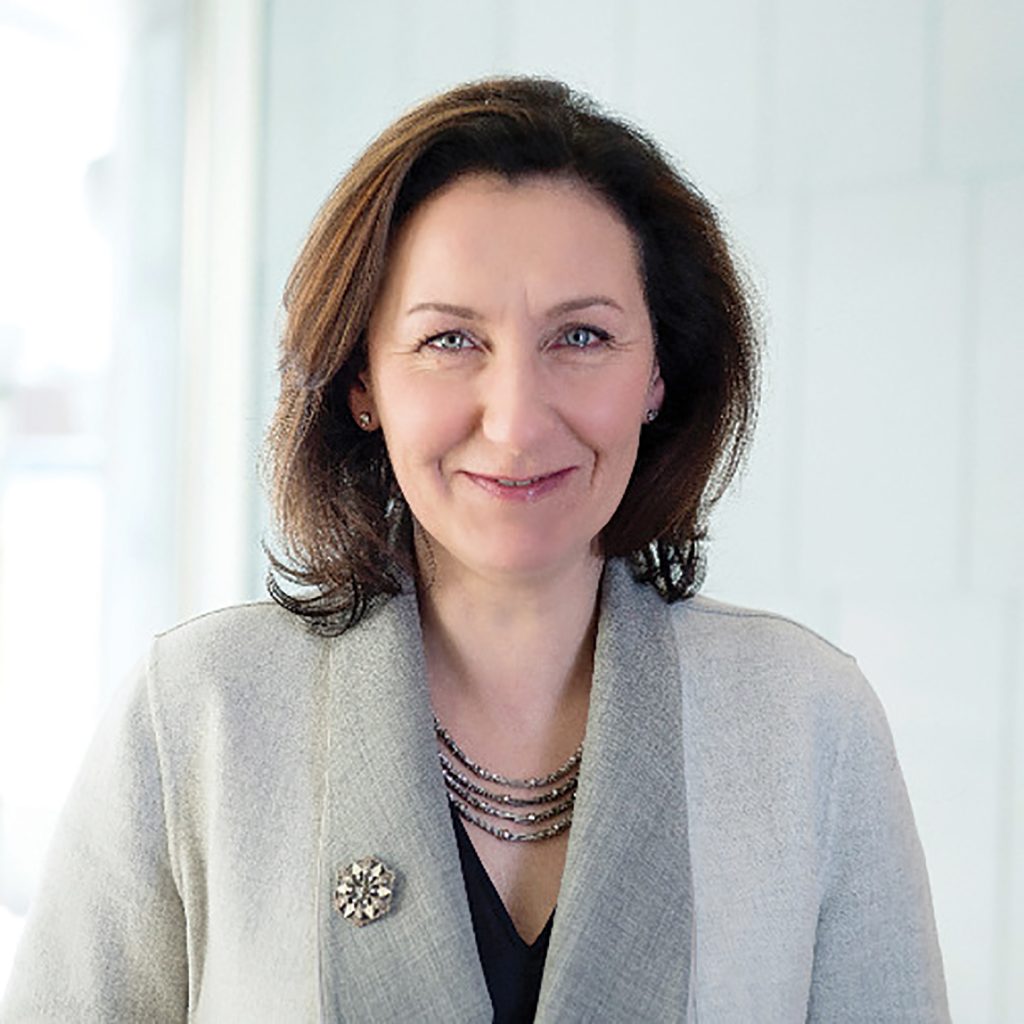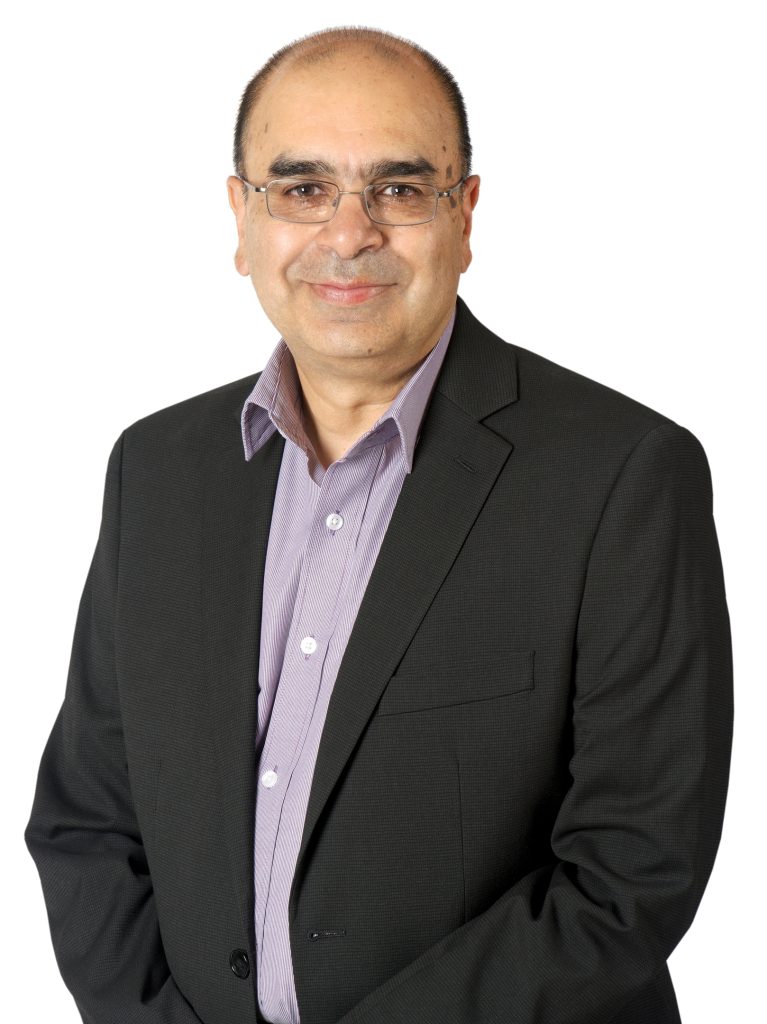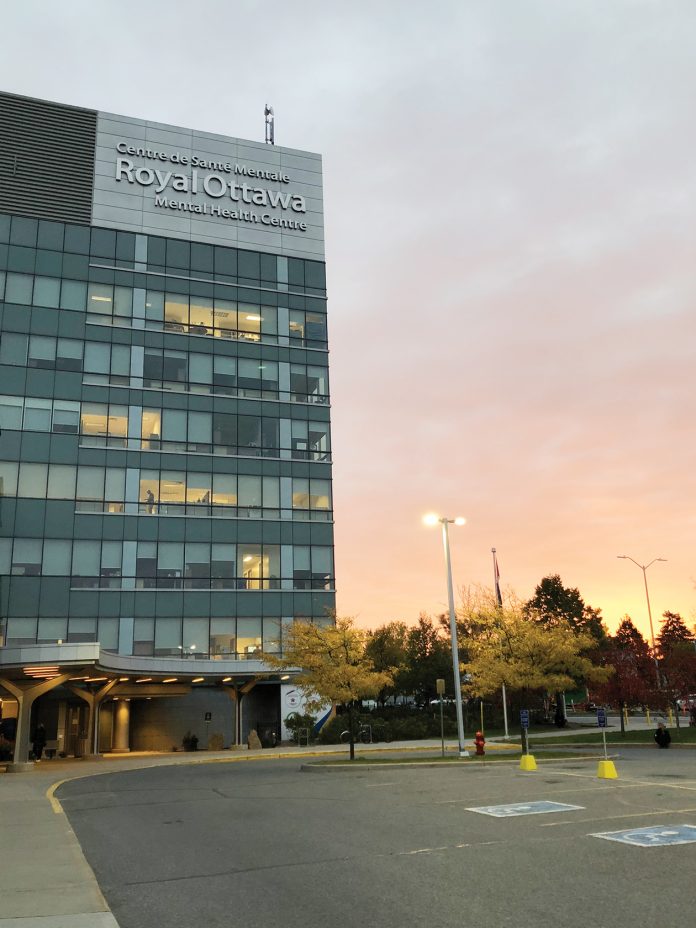By Matthew Horwood
Thanks to a gift of $1.5 million from anonymous donors at the Ottawa Community Foundation’s fund, the Royal’s Institute of Mental Health Research (IMHR) will be able to make advancements to improve mental health.
Dr. Florence Dzierszinski, president of IMHR, said the donation is one of the largest they have ever received.
“It is incredibly generous and shows leadership and vision. We are humbled and grateful for this anonymous donor, and the Ottawa Community Foundation,” she said.
The gift will help IMHR with research initiatives in three areas. The first involves examining physical indicators in the brain called biomarkers to understand the biological underpinnings and consequences of depression and suicide.

The donation will also be used to create Ottawa’s first repetitive Transcranial Magnetic Stimulation (rTMS) clinic. rTMS involves modifying the brain’s activity by directly intervening inside by using electrical, ultrasound or magnetic energy applied on the scalp. Dzierszinski is particularly excited by this, as the non-invasive approach can be used to treat persistent depression and other mental health conditions.
“We are really proud to bring in these services via a neuromodulation research clinic, and it will become even more important as we continue to provide our community with accessible services,” she said.
Finally, the donation will be used to support research focusing on the mental and physical impacts of COVID-19 on healthcare workers.
“We are all incredibly grateful for their contributions, and it is important to better understand how we can help them with their mental health needs and support their resilience,” Dzierszinski said.
The Royal Ottawa Mental Health Centre (ROMHC) was forced to pivot due to the pandemic, initially switching their services from in-person to online.
Dr. Raj Bhatla, psychiatrist-in-chief and chief of staff at the ROMHC, said they have conducted over 30,000 virtual visits since April, which does not include those done over the telephone.
“One of the most important things we wanted to do was to maintain connections to the people we serve, and we did that through various virtual means,” Bhatla said.
Bhatla said that initially, many mental health services across Ottawa were hit hard by the pandemic and forced to temporarily close. To meet the rising demand, ROMHC opened a rapid access clinic, known as “COVID-PROMPT”, or “C-PROMPT,” to quickly address those urgent mental health needs. Bhatla said the clinic ended up serving over 900 patients in four months.

The ROMHC has now opened the Prompt Care Clinic, which is based around a similar model to COVID-PROMPT. This clinic will provide specialized mental health assessment and therapy for individuals with moderate illness. The services are complementary to other hospital and community-based mental health services, and are available by referral from a family doctor or psychologist.
Bhatla said there is “every indication, both internationally and across Canada” that there will be a higher demand for mental health services long after the pandemic has ended. As a result, the ROMHC has launched a new five-year strategy, reflecting input from hundreds of clients, families, physicians, clinicians, scientists, staff and community partners.
The plan has five pillars: innovating and shaping care to meet client and family needs; advancing specialized care; connecting care to make a more accessible system; advocating and partnering for systemic equality; and integrating research, education, practice and lived experience.
Bhatla said that, going forward, the ROMHC will continue to meet the area’s mental health needs through collaboration with its partner agencies, which include the Canadian Mental Health Association, Queensway Carleton Hospital, Hôpital Montfort, CHEO and Bruyère.
Throughout the pandemic, Bhatla said, the ROMHC has learned of new models of care that can be extensively utilized to serve the population, including through virtual care, digital health platforms and computer and phone apps. But he recognizes that everybody has different needs, and so the ROMHC has to tailor its services to meet them.
“The pandemic has shown us that we can do things through technology that are wonderful, but we also know people need contact with each other, and we want to give the best experience for people when they need or want in-person care,” he said.
